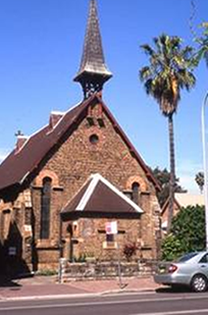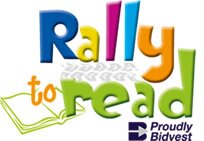The READ Educational Trust
PBO No:
NPO No:
 HUMBLE BEGINNINGS
HUMBLE BEGINNINGS
READ Started as a small voluntary committee in Soweto at the end of 1979 in response to the student demands of 1976 for reading and library facilities. So great was the demand from both the community and the funders that, within five years, READ had spread to almost all the then provinces except the Northern Transvaal and the North West.
In the beginning READ's administration operated from a bell tower room at St John's College which gave the organisation room and launched the fundraising activities for READ with a splendid lunch organised by the ladies' entertainment committee and sponsored by Shell. At this function R150 000 was raised to provide a small reference collection for all 50 high school libraries in Soweto. The World Book Company followed with a donation of a set of World Books for every school library as well as 50 sets of Child Craft for primary schools. The training was implemented by volunteers during school holidays.
READ’S PHILOSOPHY
From the beginning READ's philosophy has been to provide teachers with high quality resources, together with training in their use, which includes working on a daily basis in the classrooms with teachers. It remains so to this day. Careful books selection from a full range of publishers is a key factor in ensuring the relevance of the material, with a high priority being the interest level for the particular age group. It is important to ensure successful reading experiences early on in the learner's schooling and, for this reason, providing reading material at the right level for a particular learner, is of high importance in READ's book selection processes
LET’S FACE FACTS
A school is always a microcosm of society. In particularly rural South Africa, that includes children who live in homes where there is abject poverty, with little or no food, or access to any educational resources. These homes often contain parents who are functionally illiterate, where unemployment is the norm, and where one small government grant must pay for everything.
When the schools these learners attend are equally without resources, and staffed by teachers whose qualifications are not sufficient to give them the power to find solutions to entrenched problems, then these children are indeed part of a lost generation.
The rural education paradigm is one of neglect, lack of investment, and disheartening infrastructure gaps. Many rural teachers are not necessarily properly equipped to deal with the exigencies of today’s complex educational system.
There is also insufficient development support for rural teachers from government, either in their role as teachers, or in the wider role they play for some learners, as responsible adults, in communities where there are many child-headed households. Teachers need help, today, in more than just how to teach.
Often rural schools are not visited by responsible officials for years, and their resources are non-existent. Non delivery of text books is a small problem in comparison to the infrastructure problems many rural schools have. These are, in no particular order: no furniture, no desks, no blackboards, no roofs, no running water, no electricity, no toilets, no fire-fighting equipment, no first aid kits, no books, no paper, no pens, no clinic, no food, no floors and no doors. Yet teachers are expected to continue teaching in this environment. There is no expectation that a miner would be able to dig the earth without a drill, and power to move that drill, yet teachers are expected to produce educational gold, without being given the proper tools or support to do so.
Yet it is not outside of the power of society to affect change in these communities. Read’s core function is to improve the language and literacy levels of our learners so that they can function effectively in society as well as the rapidly developing world we live in.
In addition to this, it is Read’s philosophy to be a whole community developmental organisation, where everyone benefits from the educational programmes implemented over the three year period.
- Children have to be responsible for their actions and use all opportunities available to them.
- Parents are responsible to nurture children and guide them to adulthood.
- Teachers should inspire children to be more, reach more and give more than what is expected of them.
- All other adults should take an interest in the welfare or our children and be positive models for them to aspire to.
THE READ RALLY TO READ PROGRAMME
READ’s role in the Rally is to train, coach and support the teachers in the Rally schools through structured, in-service teacher training and dedicated support in the classroom. This is supplemented by quality resource provision to improve the literacy, language and comprehension skills of primary school learners in the Rally schools.
All Rally school teachers are trained in the modern, internationally endorsed (although thoroughly South African) Balanced Language approach now entrenched in the National Curriculum in South Africa. READ provides a carefully selected range of teaching resources and books so that teachers can implement the methodologies systematically and explicitly.
The READ trainer visits each Rally teachers’ classroom regularly to support the teachers in the implementation of the programme objectives and with their teaching practice. During these visits the impact of the project on learners are assessed.
The dedicated educators who have managed to turn their schools around within the three Rally years are evidence that the Rally can serve as a model for wide-scale rural education. Project schools that often begin with bare classroom walls and dispirited teachers respond well to the intervention. Colourful classrooms conducive to learning, teaching methodologies that are user-friendly, child-centred and produce results, combined with relevant resources that are meaningful to the learner are the key factors that build up over time and contribute towards a model of best practice.
For more information on The READ Educational Trust please click here or contact us at:
| Ormonde, 2091 | Braamfontein, 2017 |
| (T) | (E) |
| (F) |
